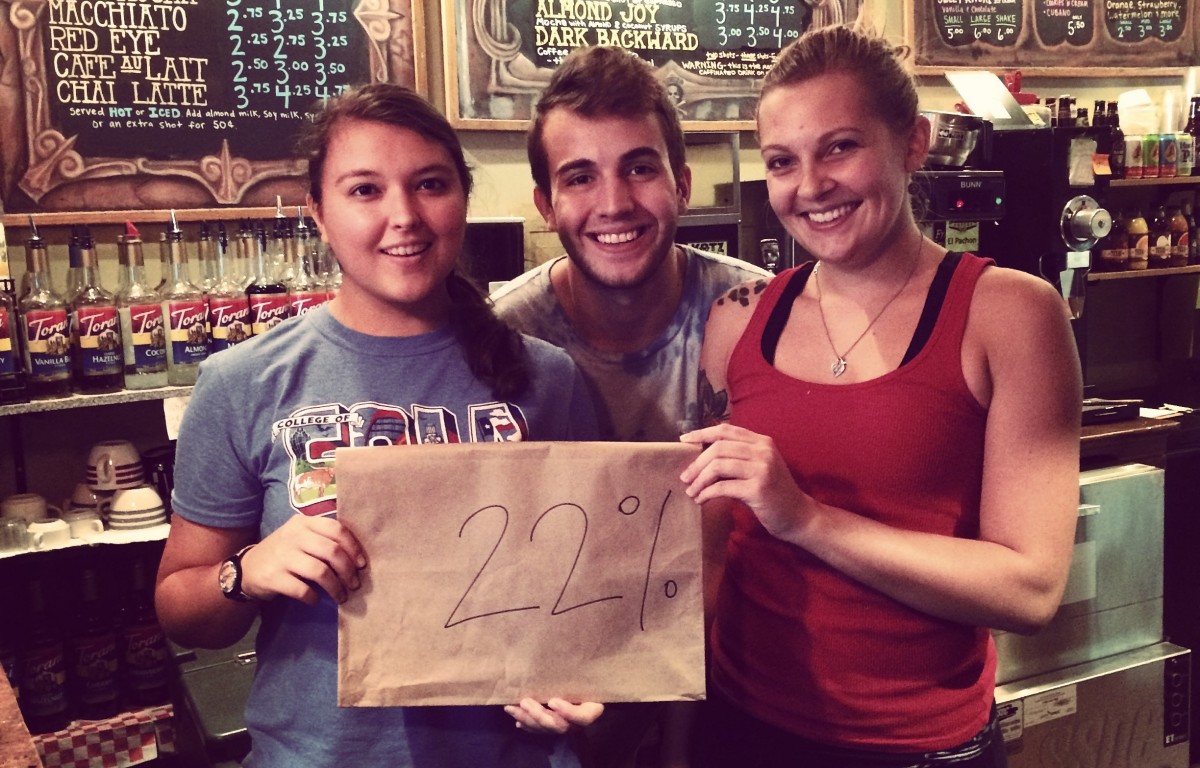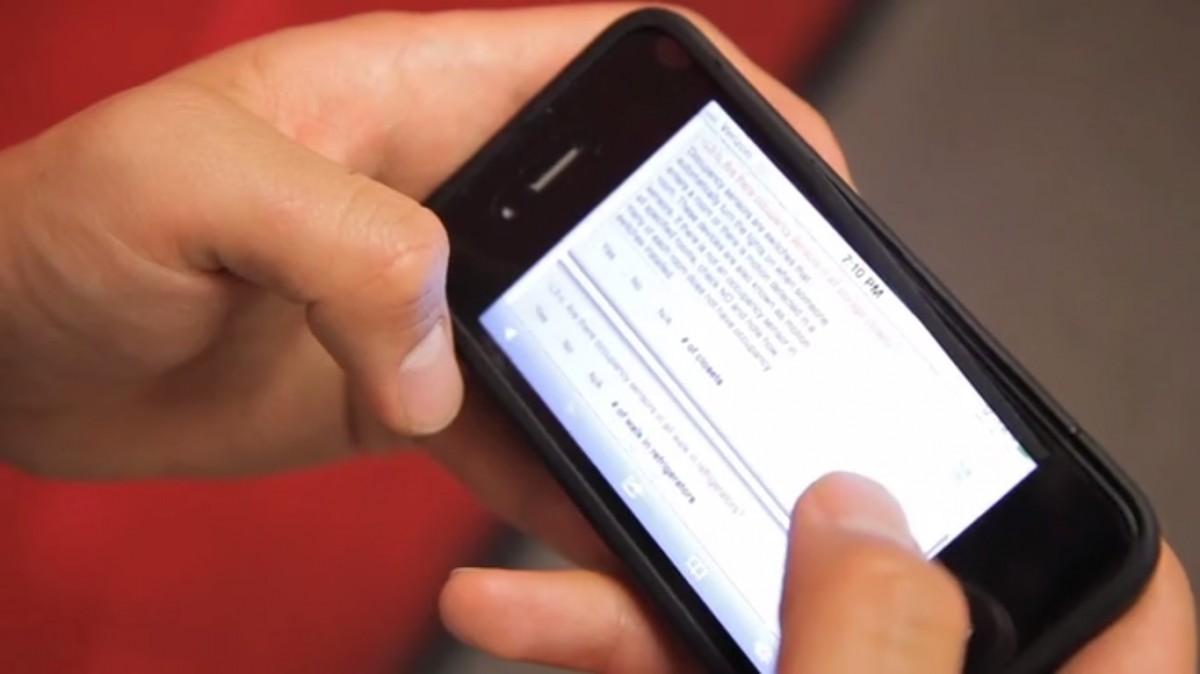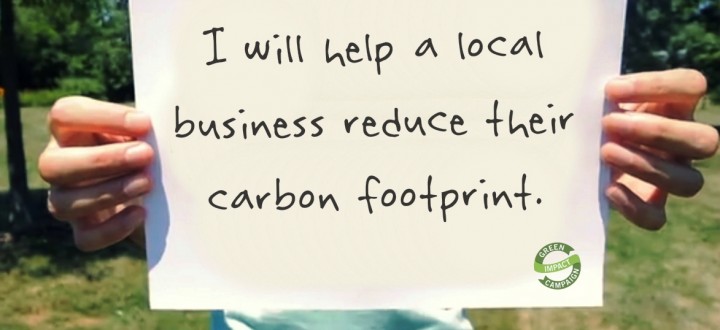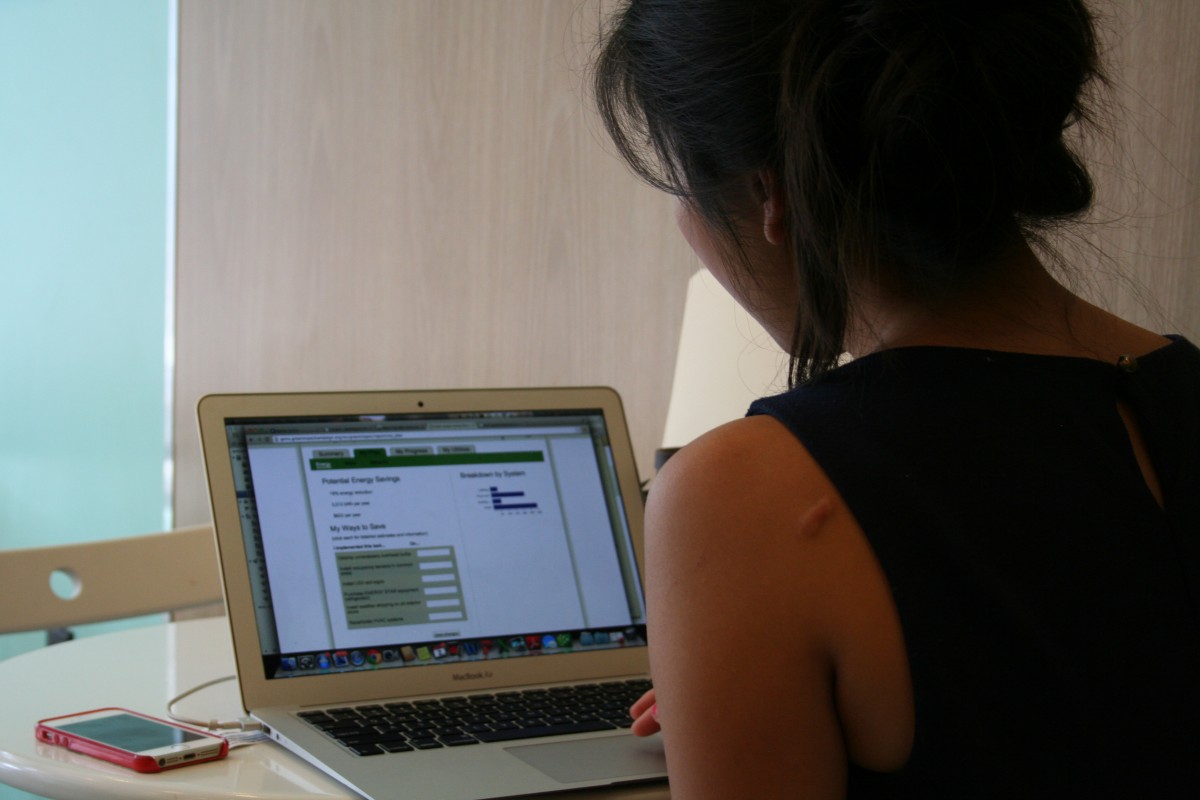For most people, a trip to the dentist is a reminder of the virtues of flossing, or the sharp pain and numbness that follows a Novocain needle. For Mimi West, a graduate student at the University of Virginia, it was an opportunity to make her community a little greener.
Mid-cleaning, West peered up at her dentist and asked, “Would you be interested in having me conduct a free energy audit for you?”
It would be the fourteenth energy audit that West had conducted for a local business in just ten days. In that time, she helped identify 60,000 kilowatt hours (known as ‘kWh’), or $6,000 in annual energy savings, which is the equivalent of offsetting 40 metric tons of carbon emissions every year.

Green Impact Campaign provides students with an opportunity to conduct free energy audits for local businesses.
West is part of Green Impact Campaign, an organization that engages students at more than 70 universities to volunteer to conduct free energy audits. Since 2011, they have helped around 300 small businesses identify more than two million kWh of annual energy savings, equivalent to a quarter of a million dollars in energy costs and 1,500 metric tons of carbon emissions.
As soon as she learned about it, West knew immediately that the organization aligned perfectly with her vision for a more sustainable and energy-efficient world. “The moment I found out about Green Impact Campaign, I knew it was for me. The goals resonate with mine and the vision I have for the kind of impact I’d like to have on the world.”
Developing a More Efficient Energy Audit
Americans first began conducting energy audits during the energy crisis of 1973. As rising oil prices drove energy costs to dizzyingly unaffordable levels, building owners tried desperately to find ways to use less energy. This need gave rise to the energy audit, a lengthy, time-consuming, and technical process that analyzed all the ways a building was consuming energy and identified ways to conserve energy.
The service typically involved a trained engineer surveying all the energy-using devices in the building, identifying various energy-efficiency upgrades, calculating energy and cost saving estimates, and writing lengthy, detailed reports. Over the past several decades, the energy audit has grown in popularity alongside the growing concern for the environment and businesses’ bottom lines. However, the energy audit process has not changed much since its beginning.
Green Impact Campaign has not only streamlined the energy audit process, but turned it into an educational opportunity for students. Dave Hussey and I conceived of Green Impact Campaign while earning our MBA at James Madison University. Both of us noticed a lack of attention for the energy consumed by small businesses and their desire to become more sustainable, largely because their buildings and budgets were too small to be cost effective for a traditional energy audit.
Our combined background in energy and sustainability consulting and web solutions and applications enabled us to develop a cloud-based energy auditing tool that could be used by students to deliver energy audits to businesses at no cost and in much shorter time. Now, the program is available to students across the country.

Students use a simple, self-training cloud-based energy auditing tool called GEMS to conduct energy audits in only 20 minutes.
Here’s how it works. Students learn about Green Impact Campaign through existing network organizations, such as Net Impact and Alliance to Save Energy, as well as direct campus outreach efforts in select regions. After receiving a volunteer toolkit and attending a kick-off call, students use GEMS, the cloud-based energy audit tool, to conduct energy audits on their smartphone.
As they walk through a business’s building, GEMS prompts the student with simple yes or no questions regarding various energy- and water-using devices, such as the types of light bulbs, insulation, or thermostat settings.
Once a student has completed the questions, GEMS automatically compiles a report of energy-efficiency recommendations for the business owner, including cost and savings estimates, a comparison of the business’s current energy usage to similar businesses, and a progress tracker to measure their change in energy usage over time.
A traditional pen-and-paper energy audit can take a couple of days to complete, not including the time to train the auditor. Using GEMS, the average energy audit takes a student just 20 minutes and identifies 25 percent in energy savings for a business—with zero prior training needed.
Why Small Businesses?
In the United States, small businesses account for approximately $60 billion in annual energy costs and nearly half a billion metric tons of carbon emissions every year. That’s equivalent to powering half of the homes in the United States.
The free energy audits provided by the student volunteers easily enable small businesses to simultaneously discover cost savings and energy efficiency. Most importantly, it costs them nothing.
“Green Impact Campaign provided in-depth sustainability feedback for our locations, as well as recommendations for lowering our overall footprint,” says Robby Goldsberry, Director of Operations at cove, a shared workspace with multiple locations around the D.C. area.
“For example, the information provided suggestions and helped facilitate a transition to LED and other high-efficiency lighting solutions,” Goldsberry said.
Free Energy Audits Help Students Gain Professional Skills
Small business owners are not the only ones who benefit from Green Impact Campaign’s efforts. University students are getting hands-on training in environmental stewardship.
Unfortunately, the traditional classroom, with its textbooks and hypotheticals, is failing to prepare students to make the transition from graduation to an impact career. According to Net Impact’s 2015 Business as UNusual report, a third of students do not feel that their school’s program offers adequate career preparation resources for impact job seekers.
Through their involvement with Green Impact Campaign, students have an opportunity to deepen their knowledge on energy-efficiency and sustainable business practices by being able to touch, see, and interact with sustainability concepts in a real-world setting. Many student volunteers have gone on to internships and jobs with firms that specialize in energy audits or sustainability consulting. Others have gone on to take their sustainability knowledge further by sitting for and passing the LEED Green Associate exam, enabling them to work in the green buildings industry.
One group of students from the University of California at San Diego became so inspired that they developed the Kill the Cup Challenge, an initiative aimed at reducing the use of disposable cups on campus. Another past graduate student volunteer is now a professor at Purdue where she incorporates the energy audit program into her class’s curriculum.
Donny Jagoda was one of the first student volunteers with the program. “Being a part of Green Impact Campaign was a great experience and allowed me to gain valuable skills in the energy and environmental field. The skills that I obtained gave me a huge advantage in securing an internship for the summer, which I’ve now made a career,” explains Jagoda. “Companies are always looking for real world experience in the candidates they interview and being a part of this definitely gave me that experience as a student.”
An Audit Competition Comes to Washington
This spring, Green Impact Campaign will host its first ever city-wide energy audit competition in Washington, D.C. Students from D.C.’s major universities will compete against one another to see which school can conduct the most energy audits for local businesses. Fifty students will likely participate, helping an estimated 300 local businesses.
To help participating businesses take the next step after the competition, Green Impact Campaign will partner with other community-level organizations, including Think Local First DC, Nextility, DC Sustainable Energy Utility, and Spark Fund implement their energy audit recommendations and further reduce energy costs.
West, who had convinced her dentist and countless other small business owners of the value of the energy audit, reflected on how her experience as a student volunteer had changed her outlook on the future of sustainability.
“From a very young age, I wanted to devote myself to sustainability, but I often felt a sense of doom and gloom about the environment. I thought for many years that the planet was doomed, businesses were greedy and most people were in denial or simply didn’t care. My outlook on the future of sustainability is much brighter now, thanks to my involvement with Green Impact Campaign,” said West.
“Being a part of Green Impact Campaign and completing the energy audits actually helped me reverse my negative outlook on sustainable businesses.”
To learn more about Green Impact Campaign, visit greenimpactcampaign.org.
Daniel Hill
Daniel Hill is co-founder and president of Green Impact Campaign, a national nonprofit working to reduce the environmental impact of small business on the planet while better equipping the next generation of climate leaders. Daniel is an Echoing Green Climate Fellow and Clean Energy Leadership Institute Fellow and based in the DC area.





Pingback: Ecopreneurist | A blog for and about eco and social entrepreneurs, startups, cleantech, web 2.0 and disruptive business ideas.
Pingback: Training Students To Provide Free Energy Audits for Small Businesses: Green Impact Campaign